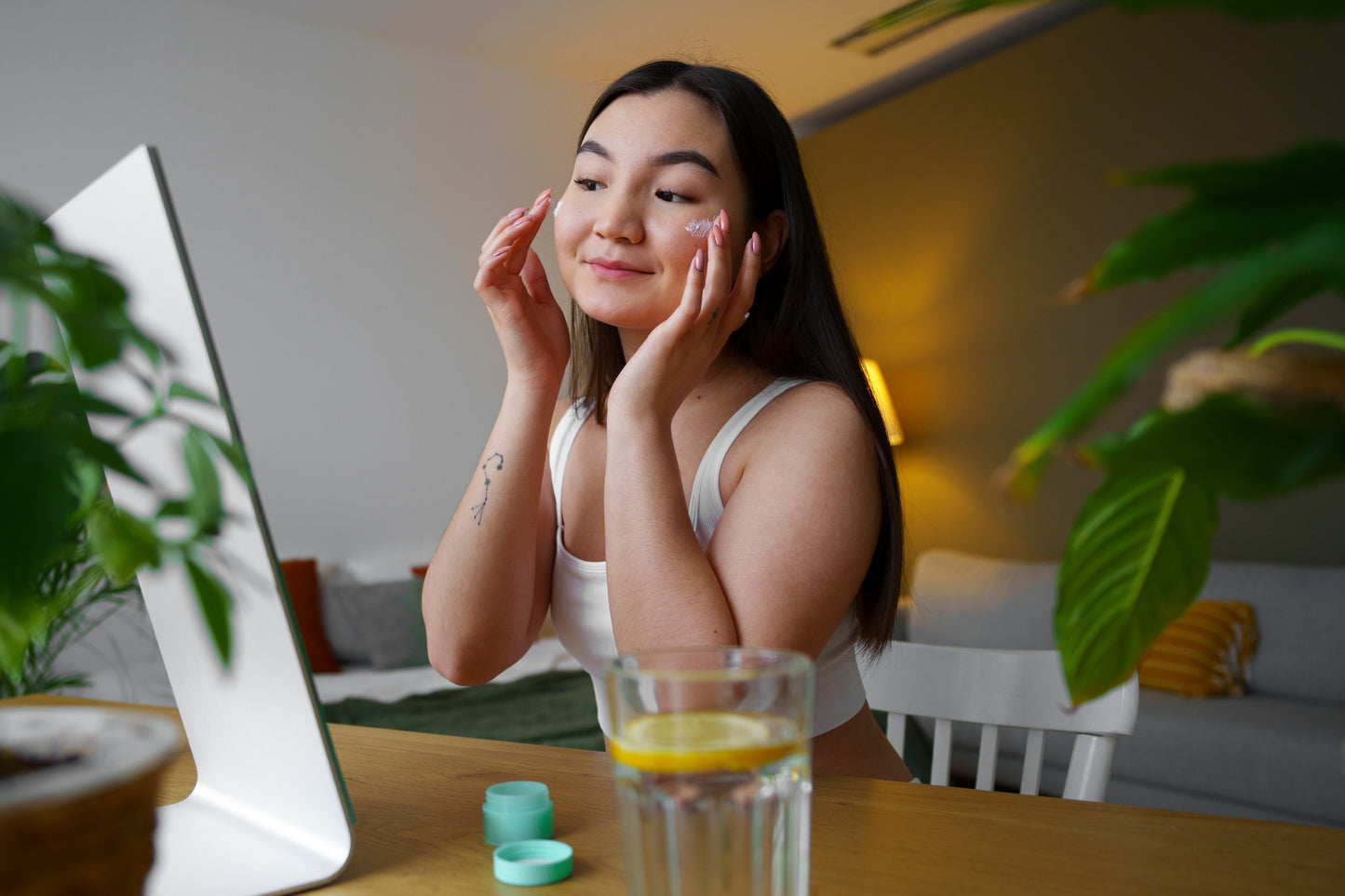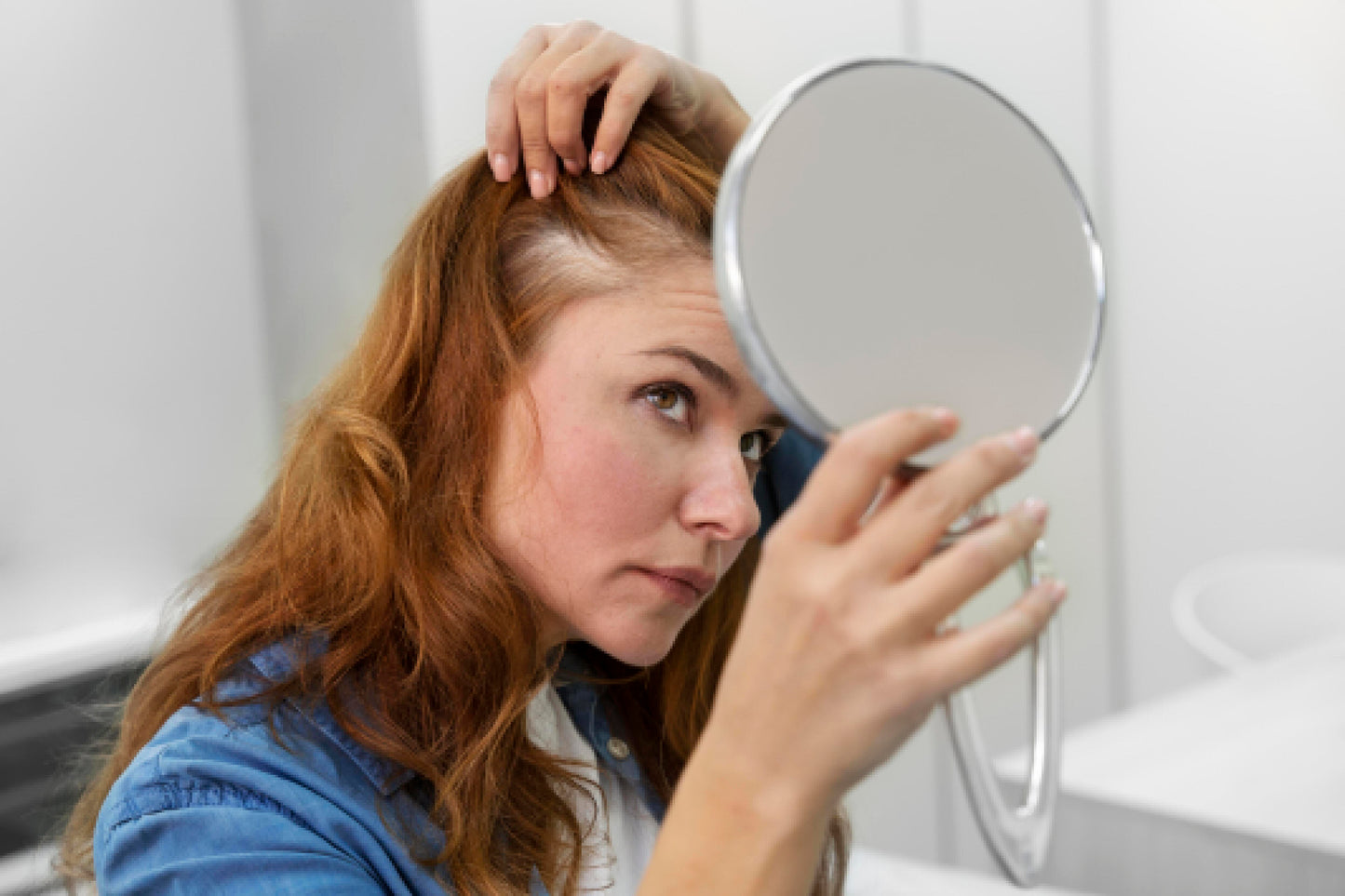
COVID-19 shows a wide variety of symptoms in people infected with it. One of such is hair loss, as reported in people who have recovered from COVID-19.1

Causes for COVID related hair fall
Fever or illness:
Temporary hair loss is normal after fever or illness, and fever is a common symptom of COVID-19.2 Thus, hair loss was independently associated with more severe COVID-19 illness.1 Most of the people observed hair shedding 2 to 3 months after having a fever or illness. This hair shedding is called “telogen effluvium”.2
People with telogen effluvium observed noticeable hair loss that comes on suddenly. Hair usually falls out in large clumps, often while brushing or showering.1
Stress:
COVID-19 can cause both physical and emotional stress. And stress can cause temporary hair shedding. It is also observed in some people due to quarantine stress.1,2 Hair shedding occurs as the body only focuses on essential functions in the lockdown mode when it experiences shock.3
No direct association observed between the novel coronavirus and hair loss. But, doctors believe that the physical and emotional stress that accompanies COVID-19 can lead to telogen effluvium.
Stress-induced telogen effluvium is diagnosed by eliminating other potential causes of hair loss. Doctors might also do a blood test to rule out a thyroid problem or nutritional deficiency, which all can also cause hair loss. 3
Stress adds up after seeing the hair fall out in clumps. Thus, it is important to try to de-stress.2
Coping with Hair Loss
One typically lose up to 100 hairs per day. While, in telogen effluvium, people can lose around 300 strands every day for up to 6 months which can cause a lot of distress and anxiety.
But, the good news is, telogen effluvium is temporary, and the hair will ultimately grow back. Though, it may take a while for the hair to achieve its original richness and length.
Here, one should focus on developing a healthy lifestyle instead of taking a supplement. Also, one can find ways to manage stress, which could further help begin hair regrowth, eat a nutrient-rich diet, and avoid smoking.
Understanding about telogen effluvium and knowing that the hair will grow back eventually is also essential for patients.3
Remedies for Hair Loss:
Hair tends to return to normal on its own with time when the cause of hair shedding is fever, illness, or stress. Most people see the hair growth to its normal length within 6 to 9 months.2
What can one do at home?
Some of the things which can be done at home to help treat hair loss are:1
Lifestyle changes:
Some of the grooming practices can contribute to hair loss. Thus, one should avoid things that are harsh on the hair, such as:
- Pulling or tugging on hair while brushing
- Wearing hairstyles that pull on hair, such as ponytails, hair extensions, and tight braids
- Hair treatments that can damage hair, such as perms and hot-oil treatments
Minoxidil:
It is available over the counter (OTC) medication. Both men and women can use it to help regrow hair or to slow hair loss. One can also find it in stores as a shampoo, liquid, or foam.
Devices:
Devices such as microneedling devices and laser combs or caps are available for at-home treatment of hair loss.

Alternative treatments:
Most of the alternative treatments for hair loss have been discovered. Few examples of alternative hair loss treatments are:
- Amino acids
- Vitamin D
- Fish oil
- Onion juice
- Rosemary oil
- Saw palmetto
But, remember to always talk with the doctor before using any at-home treatment or supplement. As some of the supplements can interact with medications with some of the ongoing medication.1
Medication:
There are several potential treatments that doctor might recommend for hair loss, depending on its cause. The doctor can prescribe some medications or procedures to treat the hair loss, including:
- Finasteride: Can be used by men to slow the rate of hair loss and stimulate new growth.
- Spironolactone: Can be used in women to help slow hair loss and improve hair thickness.
- Corticosteroid injections: Injecting corticosteroid medication into areas of thinning hair or baldness might be helpful for some types of hair loss.
- Hair transplants: A dermatologist or cosmetic surgeon removes hair from one part of the head and transplants it to an area of baldness.1
References:
- What We Know about Hair Loss and COVID-19, https://www.healthline.com/health/coronavirus-and-hair-loss, last accessed on 17th May 2021.
- CAN COVID-19 CAUSE HAIR LOSS?, © 2021 American Academy of Dermatology Association, https://www.aad.org/public/diseases/hair-loss/causes/covid-19, last accessed on 17th May 2021.
- COVID-19 Survivors Are Losing Their Hair — Here’s Why, https://www.healthline.com/health-news/covid-19-survivors-are-losing-their-hair-heres-why, last accessed on 17th May 2021.






